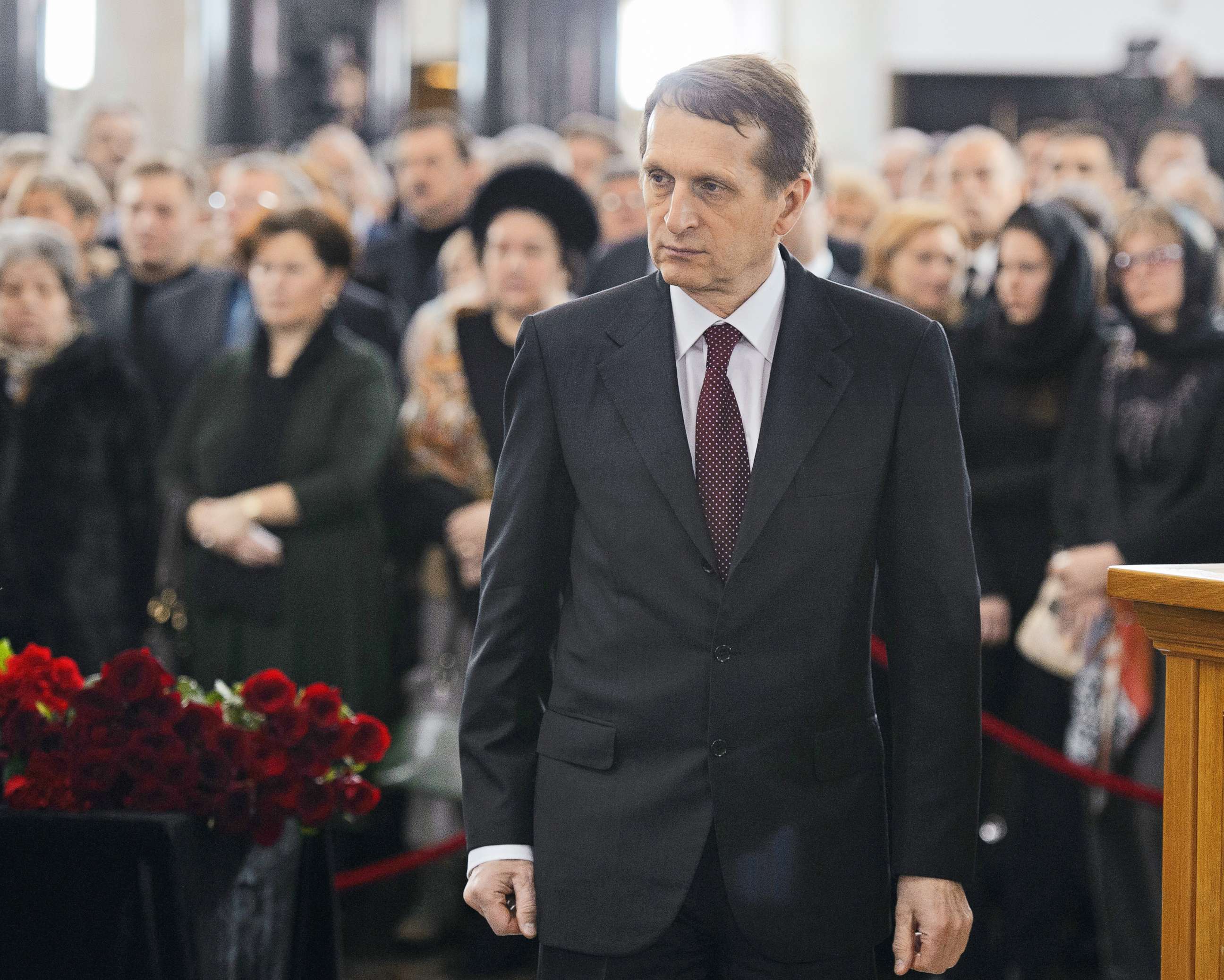CIA director met with Russian spy chief amid 2018 election concerns, two ambassadors say
The high-level meeting was about shared concerns over terrorism.
— -- CIA Director Mike Pompeo met with Russia's senior-most spy chiefs last week amid deepening concerns about Russia's potential interference in the 2018 midterm elections in the U.S., according to two ambassadors.
According to Russian ambassador to the U.S., Anatoly Antonov, and U.S. ambassador to Russia, Jon Huntsman, the high-level meeting was about shared concerns over terrorism.
However, the meeting has also raised pointed questions on the left, with Democrats wondering how a sanctioned spy chief got into the U.S. and amid ongoing frustrations over how President Donald Trump handled Russia sanctions for its interference in the 2016 presidential election.
"The Trump administration must immediately come clean and answer questions," Senate Minority Leader Chuck Schumer told reporters on Monday. "Which U.S. officials did he meet with? Did any White House or National Security Council meet with Naryshkin? What did they discuss? Surely he didn't come alone."
The CIA and the Office of the Director of National Intelligence declined to comment on Pompeo's schedule.
Antonov said Tuesday that Sergey Naryshkin, the chief of Russia's foreign intelligence agency, known as the SVR, met with Pompeo to discuss the "joint struggle against terrorism."
"Politics is politics, but work is work. There are the political slogans, and then there’s the real work," Antonov said in an interview with the Russian television network Rossiya-1.
Antonov's counterpart — Huntsman — confirmed that Pompeo met with "senior-most" Russian intelligence officials last week, but did not name Naryshkin specifically.
"Just in the last week, [Pompeo]'s had probably the most important meetings on counter terrorism that we've had in a very, very long time at the senior-most levels," Huntsman told Echo Moscow radio station Tuesday — going on to mirror Antonov's explanation and added, "Even as we're, you know, receiving barbs coming into the embassy and the relationship, we're actually underneath engaged in substantive work that, I think, is saving lives and bringing stability to places," like the Middle East, Korea, and potentially Ukraine.

Democrats' concerns seemed to focus on Naryshkin's sanctions designation for his role in Russia's incursion into Ukraine in 2014. At the time, Naryshkin was the chair of the Duma, Russia's parliament.
"We sanction the head of their foreign intelligence, and then the Trump administration invites him to waltz through our front door," Schumer said, calling it "an extreme dereliction of duty by President Trump."
While the administration would not confirm the meeting, the Director of National Intelligence's office denied the office has broken any laws or violated sanctions.
"While we do not discuss the schedules of U.S. intelligence leaders, rest assured that any interaction with foreign intelligence agencies would have been conducted in accordance with U.S. law and in consultation with appropriate Departments and agencies," Office of the Director of National Intelligence spokesperson Timothy Barrett said in a statement to ABC News.
The meeting comes amid heightened concerns about Russia's aggression abroad — something about which Trump's own national security strategy warned and Pompeo himself addressed on Monday.
"I haven't seen a significant decrease in their activity," Pompeo told the BBC.
When asked if he was concerned about the 2018 midterm elections in particular, he added, "Of course. I have every expectation that they will continue to try and do that, but I'm confident that America will be able to have a free and fair election, that we will push back in a way that is sufficiently robust that the impact they have on our election won't be great."
Senate Democrats expressed concern Tuesday that Trump's administration was not doing enough to push back, after the State Department announced no new sanctions Monday, the first day they could implement third-party sanctions on businesses doing deals with Russia's defense and intelligence sectors.
"By imposing no new sanctions under CAATSA mandates, the U.S. remains vulnerable to an emboldened Russian government in advance of this November’s congressional elections," 24 Democratic senators wrote in a letter to Trump Tuesday night.
CAATSA — or the Countering America's Adversaries Through Sanctions Act — is a law signed by Trump in August that imposed sanctions on Russia, Iran, and North Korea.
The State Department said Tuesday that sanctions remain an option, but the law had already led to Russia losing "several billion dollars" worth of deals — although the agency provided no proof or details of those details, citing confidential diplomatic discussions.
ABC News's Mariam Khan and Patrick Reevell contributed to this report.




